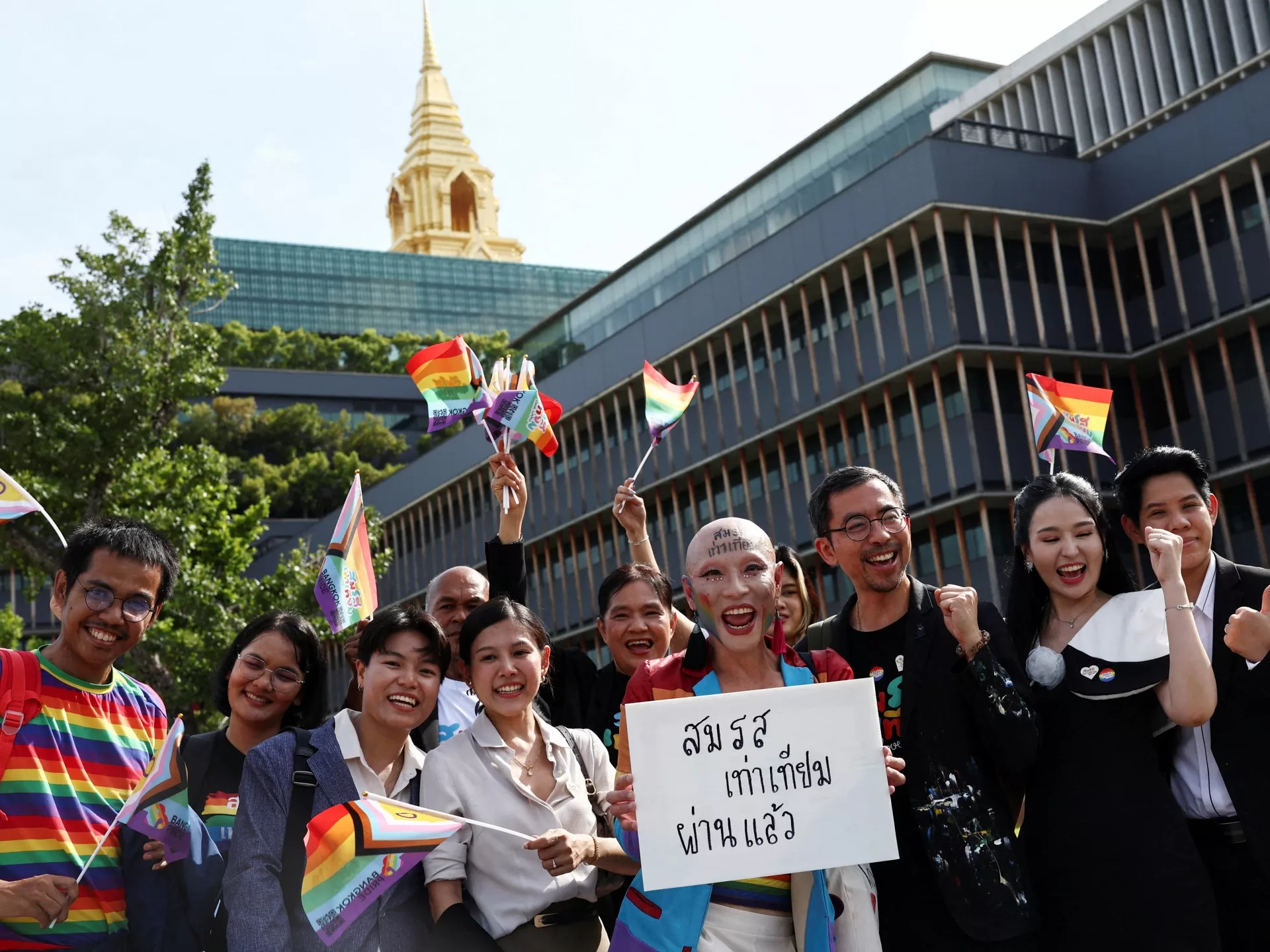Activists hail ‘monumental step’ as Thai king signs the country’s marriage-equality bill into law.
Thailand’s king has signed a landmark marriage equality bill into law, making the kingdom the first country in Southeast Asia to recognise same-sex marriages.
King Maha Vajiralongkorn endorsed the new law on Tuesday, according to the Royal Gazette. The legislation is set to take effect in 120 days, meaning LGBTQ+ couples will be able to register their marriage in January next year.
Activists hailed the move as a “monumental step”, with Thailand only the third place in Asia where same-sex couples can legally wed, after Taiwan and Nepal.
The law, which sailed through both the House of Representatives and the Senate in April and June respectively, grants full legal, financial and medical rights for marriage partners of any gender. It uses gender-neutral terms in place of “men”, “women”, “husbands” and “wives”, and also grants adoption and inheritance rights to same-sex couples.
The king’s formal approval marks the culmination of years of campaigning and thwarted attempts to pass equal marriage laws.
“The law is a monumental step towards equal rights in Thailand,” Waaddao Chumaporn, an LGBTQ rights advocate, told the AFP news agency.
She plans to organise a mass wedding for more than a thousand LGBTQ+ couples in Bangkok on January 22, the first day the law takes effect.
“We are all delighted and excited. We’ve been fighting for our rights for over 10 years, and now it’s finally happening,” Siritata Ninlapruek, an LGBTQ activist, told AFP, her voice shaking.
Prime Minister Paetongtarn Shinawatra posted congratulations “for everyone’s love” on the social media platform X.
“Thank you for the support from all sectors. It is a joint fight for everyone,” she wrote with the #LoveWins hashtag.
Thailand has long had an international reputation for tolerance of the LGBTQ community, and opinion polls reported in local media have shown overwhelming public support for equal marriage.
However, much of the Buddhist-majority kingdom retains traditional and conservative values and LGBTQ people say they still face barriers and discrimination in everyday life.
More than 30 countries around the world have legalised marriage for all since the Netherlands became the first to celebrate same-sex unions in 2001.
India’s highest court deferred a decision on the matter to parliament last year and Hong Kong’s top court stopped just short of granting full marriage rights.
Thai activists have been pushing for same-sex marriage rights for more than a decade, with their advocacy stalled by political turbulence in a country that has regularly been upended by coups and mass street protests.
